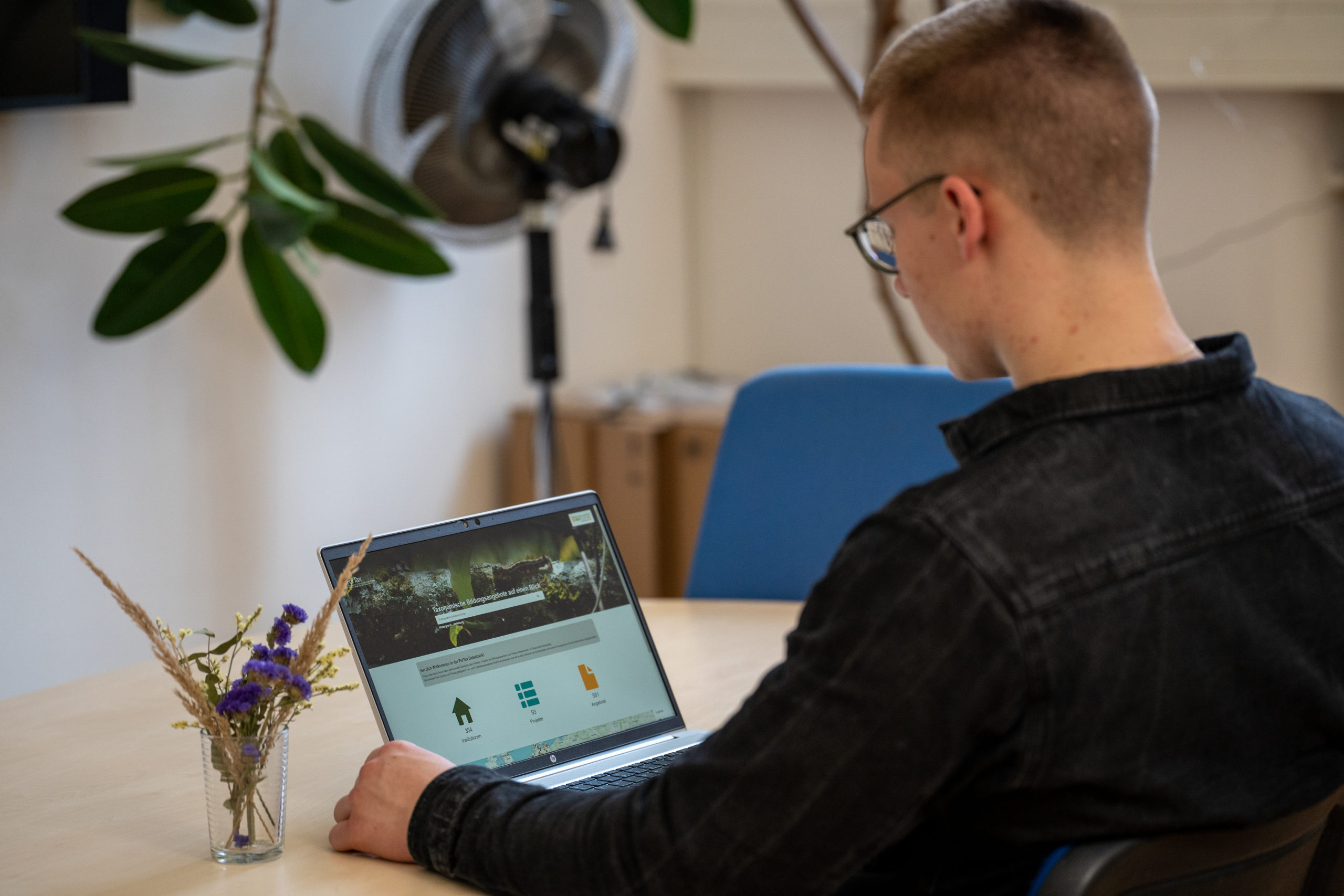New FörTax data portal goes online
 © Karsten Stehr
© Karsten Stehr
In the fight against the loss of biodiversity, comprehensive species knowledge is needed at all levels, but the competencies are lacking. The FörTax project for the promotion of taxonomic knowledge as a basis for nature conservation has developed an online data portal that for the first time provides an overview of currently existing relevant activities for species knowledge transfer in Germany. From now on, the portal supports young taxonomists and those interested in species knowledge in an unprecedented way. An online database with “all” taxonomic education offers “at a glance” is completely new. Until 2025, the database will be further developed together with the users.
“The first prototype of the FoerTax data portal provides a comprehensive overview of providers, projects and educational offers in the field of species knowledge in Germany” explains Dr. Nicole Nöske, responsible for the inventory in the FoerTax project. “The portal is intended to make it easier to search for and find suitable education and training offers locally to nationwide, thus counteracting the dwindling of species knowledge and its consequences for nature conservation.
“The goal of the FörTax project is to spread species knowledge broadly throughout society in order to lay the foundation for the protection of nature and the preservation of biodiversity, because what you know, you also want to protect. The database provides all those interested in species knowledge with a good basis for finding out what is available,” explains Dr. Katja Waskow, the project coordinator.
In the inventory of the FörTax project, located in the Education and Outreach Department of the LIB Bonn site, the status quo of species knowledge education for the biodiversity of Central Europe is determined nationwide, taking into account all relevant institutions (universities, natural history museums, professional societies, clubs and associations, biological stations, etc.). The researched educational offers cover the whole range of organisms – animals, plants, fungi and microorganisms – and target groups, including people who are generally interested in the topic to people with professional ambitions. In addition, all ages are addressed. The offerings range from courses and excursions for beginners to advanced learners, to e-learning platforms, to participation offerings in Citizen Science projects and the opportunity to join targeted expert groups. The information can also be used to build one’s own network.
The data was collected according to three categories: according to institutions that are “still” active in species knowledge education nationwide, according to projects that focus on or are partially dedicated to species knowledge education, and according to educational offerings, subdivided by formats, target groups, as well as organism groups. The inventory is conducted through research on the internet and at professional conferences, personal interviews with actors of training institutions, job shadowing with trainers, interviews with particularly committed individuals, as well as surveys both online and via networks. The research started at the end of 2020 and will continue until the end of 2025.
“If you are interested in nationwide species knowledge education, you have the possibility to search specifically via the database,” adds Christian Bräunig, who is responsible for programming and creating the web interface.
The collected data will be archived in the Diversity Workbench database established at the LIB in the Agents module according to Fair Data principles and made permanently openly accessible to the general public via the online data portal. Users are confronted with the user interface where search queries can be submitted and results viewed. An indexer works under this interface; it is periodically populated several times a day with the current contents of the actual database and processes the queries entered by users. Indexing the data makes it easier to search the individual database entries and thus allows search queries to be processed much more quickly. All these layers are run on servers of the Biodiversity Informatics Department of the LIB Bonn.
The user interface offers a variety of ways to search the contents of the data portal. Users can search for specific content using keywords in a search box and construct very precise search queries by optionally linking multiple keywords. The results obtained can be further refined: on the one hand, interactive maps allow the results to be narrowed down geographically. In addition, filters are available to tailor results to data type-specific categories alphabetically or by number of entries. In addition, links exist between a large number of the entries in the data portal, so that higher-level or lower-level entries can be easily viewed. In this way, the wealth of information available in the data portal can be searched quickly and effectively.
This is just the beginning of the FörTax database. With the help of users, who will be actively involved in the design and further development of the database through surveys over the next few years, the portal will be continuously optimized and developed. Thus, the database will become an important added value for the species knowledge community in terms of sustainability.
The FörTax project is funded in the Federal Program on Biological Diversity by the Federal Agency for Nature Conservation (BfN) with funds from the Federal Ministry for the Environment, Nature Conservation, Nuclear Safety and Consumer Protection (BMUV).
Project duration: 2020-2026.
To the data portal:
Contact:
Dr. Nicole Nöske
LIB, Museum Koenig Bonn
Center for Knowledge Transfer(zwt) , Department Education & Outreach
FörTax – Inventory
Phone +49 228 9122-385
n.noeske@leibniz-lib.de
Christian Bräunig
LIB, Museum Koenig Bonn
Center for Taxonomy & Morphology (ztm), Section Biodiversity Informatics
Programming & Webinterface
Tel. + 49 228 9122-21
c.braeunig@leibniz-lib.de
Press contact:
Sabine Heine
Head of Press & Communications, LIB Bonn


